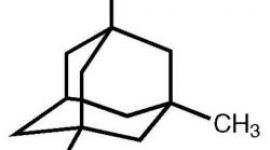Drugs for Treating Agitation, Aggression and Psychotic Symptoms

Neuroleptics - antipsychotics are used to treat behavioral symptoms in Alzheimer's patients, but their effectiveness is in question and there are some side-effects to be aware of.
Major tranquilizers (also known as neuroleptics or antipsychotics) are drugs that were originally developed to treat people with schizophrenia.
The use of major tranquilizers in people with dementia remains controversial and clinical trials are in progress to better determine their effectiveness. At the moment, none of these treatments are specifically licensed to treat people with dementia, although they are frequently prescribed to treat symptoms including agitation, delusions (disturbed thoughts and false beliefs), hallucinations (seeing and hearing things that are not there), sleep disturbance and aggression.
Effectiveness of Antipsychotics in Treating Alzheimer's Behavioral Symptoms
The extent to which these medications benefit patients is unclear, and opinions vary as to whether they are safe for this population. The results of phase 1 of the CATIE-AD NIMH (National Institute of Mental Health) study provide a first set of real-world effectiveness data where little existed before. Overall, data from this trial suggest:
- Although some atypical antipsychotic medications are modestly helpful for some patients, they are not effective for the majority of Alzheimer's patients with psychotic symptoms.
- Good clinical practice requires that medical or environmental causes for Alzheimer's-related agitation and aggression be ruled out and that behavioral interventions be considered before turning to antipsychotic medications.
- If an antipsychotic medication then is warranted, clinicians should closely monitor their Alzheimer's patients for intolerable side effects and potential safety concerns.
- Clinicians should be mindful of the limitations of these medications and weigh the risks against potential benefits.
Side-effects of neuroleptics and antipsychotics
- Side-effects include excessive sedation, dizziness, unsteadiness and symptoms that resemble those of Parkinson's disease (shakiness, slowness and stiffness of the limbs).
- Major tranquilizers may be particularly dangerous for people with dementia with Lewy bodies, possibly causing sudden death. If a person with dementia with Lewy bodies must be prescribed a major tranquilizer, it should be done with the utmost care, under constant supervision, and should be monitored regularly.
- A new generation of major tranquilizers may be less prone to produce troublesome side-effects, although some of these drugs (risperidone and olanzapine) have been determined to be unsuitable for use in people with dementia because of the high risk of stroke. So far, there is very little information about the possible risk of stroke with other drugs in this class, such as quetiapine; therefore, their use is not recommended at the moment.
- Whichever drug is used, treatment with major tranquilizers should be regularly reviewed and the dose reduced or the drug withdrawn if side-effects become unacceptable.
- Excessive sedation with major tranquilizers may reduce symptoms such as restlessness and aggression at the expense of reducing mobility and worsening confusion.
- Evidence is also beginning to accumulate to suggest that major tranquilizers may accelerate the rate of decline and disease progression in people with Alzheimer's, so there are particular concerns about the long term use of these drugs.
Anticonvulsant drugs, such as sodium valproate (Depakote) and carbamazepine, are sometimes also used to reduce aggression and agitation, as is the antidepressant drug trazodone.
Sources:
- Devanand DP, Jacobs DM, Tang MX, et al. The course of psychopathologic features in mild to moderate Alzheimer disease. Archives of General Psychiatry 1997;54:257-63.
- The Quality of Antipsychotic Drug Prescribing in Nursing Homes, Becky A. Briesacher; M. Rhona Limcangco; Linda Simoni-Wastila; Jalpa A. Doshi; Suzi R. Levens; Dennis G. Shea; Bruce Stuart, Arch Intern Med. 2005;165:1280-12.
- NIMH: NIMH Perspective on Treating Alzheimer's Patients with Antipsychotic Medications, October 12, 2006.
APA Reference
Staff, H.
(2021, December 20). Drugs for Treating Agitation, Aggression and Psychotic Symptoms, HealthyPlace. Retrieved
on 2025, April 11 from https://www.healthyplace.com/alzheimers/medications/drugs-for-treating-agitation-aggression-psychotic-symptoms


